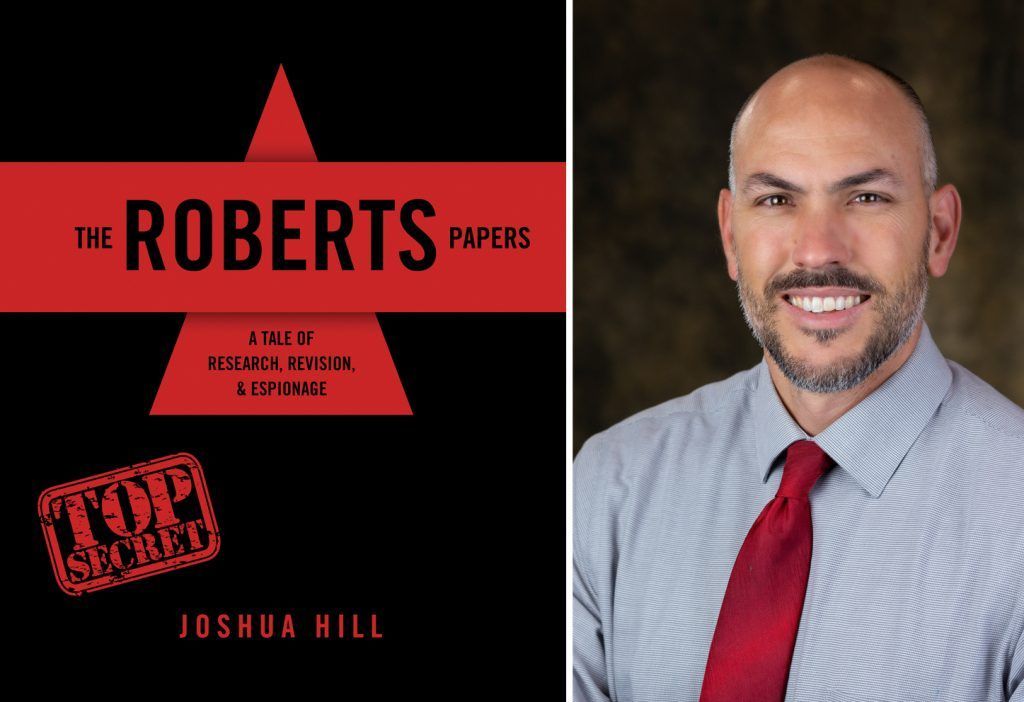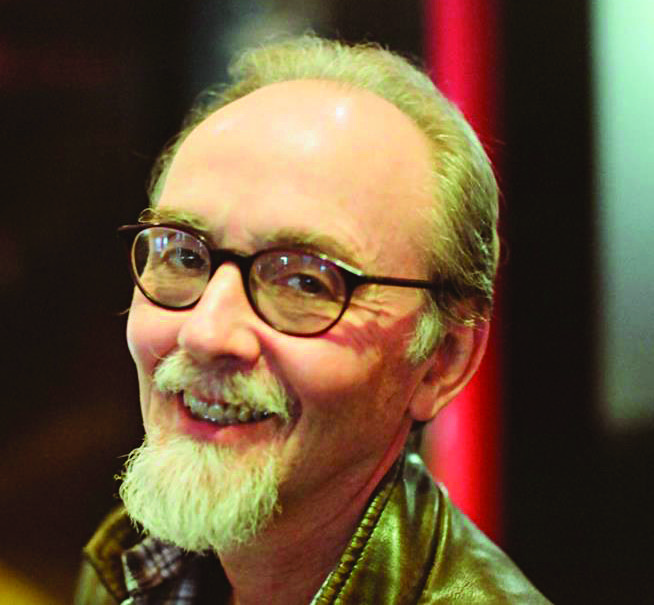
The terms “young adult novel” and “composition textbook” do not seem to belong in the same sentence.
Yet somehow, local writer and teacher Joshua Hill has made it work. A professor at Williamsport’s Pennsylvania College of Technology, Hill has written “The Roberts Papers” for use as a primary textbook in his composition class. Its catchy subtitle, “A Tale of Research, Revision & Espionage,” is borne out by the book itself, which takes the process of writing a research paper and couches it in terms of a young adult novel about high school, friendship, crummy teachers and … spying.
It’s the story of one Yun Roberts, a high-schooler whose research assignment on cyber security turns out to be more than a mere academic exercise—especially as we learn that 1) his parents seem to have a well-concealed job for the government and 2) his slave-driving teacher (who may not be what she seems) keeps grilling him for more and more detailed information.
Hill told On the PULSE that he wrote the book this way because, “like many professors, I have always been annoyed with textbooks,” which tend to be “bland, shallow and sometimes wrong.” So rather than the usual lecture-style prose, Hill used a story to describe the writing process—because students “learn more by watching and copying.”
“My reason for writing it was to communicate in a very real way to students who can visualize a skill when they ‘see’ it in a story but who have a hard time assembling a skill set from a normal dry textbook.”
In addition to creating a more user-friendly text, Hill said he had two main goals in penning this volume.
In the first place, since Yun spends about two-thirds of the book reworking and revising drafts with his friends, “Roberts” helps demonstrate that the writing process is long, tough and painstaking.
“It’s hard to convince a McCulture that there is no easy or quick way to write something with quality, but that’s what I’m trying to argue to my students through the book,” Hill said.
Even more important is the problem of properly citing information in an internet age, where almost infinite info is available at the tap of a key.
Citing sources, says Hill, “is an incredibly difficult concept for many students today because of the information revolution of the internet; culturally, information is no longer scarce or hard to find, so it is ‘felt’ to be a common resource, not owned; this is why students in all seriousness will say they didn’t cite something because they found it on the internet–to them, it is the equivalent of drinking from the water fountain instead of buying the soda at the cinema.”
Hill addresses this problem by having Yun borrow some material from his father’s strictly hands-off work computer—after which his teacher (no doubt seeking more than just proper attribution) repeatedly harasses him to find out where this info came from.
Although Hill came up with the young adult angle himself, the genesis of this book occurred when he was solicited by his publisher, Kendall Hunt, in the spring of 2018. The text was written shortly thereafter and published in early 2019.
Originally from Texas, Hill spent several years in Florida before moving to Pittsburgh in 2011, where he finished his doctorate at Duquesne. Three years ago he and his family—a wife and five kids—settled in Williamsport. His courses at Penn College include research, literature, speech and interpersonal communication. He holds graduate degrees in both English and communication.
Hill has several other projects in the works, including a book chapter on “Divine Human Communication”—which, he says, “is prevalent enough as a social fact that communication scholars have felt the need to study it. They don’t know how to deal with instances of God speaking to people within the framework of current communication theories or methodologies, so that’s a missing piece in the field that some of us are trying to fill.”
He is also working up a book on St. Augustine and the Bible, while revising another on church life—that latter with the intriguing subtitle, “How to Make the Church a Biblically Safe and Dangerous Space.”
Hill adds that he likewise plans a series of videos to supplement “The Roberts Papers.” “It’s hard to make English instruction videos on YouTube without being boring or cheesy, but I’m going to try.”
Regarding reactions to “The Roberts Papers” itself, Hill says: “Some of my students have really enjoyed the book and some have tolerated it, which is probably a better score than a normal comp textbook.” At the same time, “Many non-students—college-educated adults—really like the book, and I think it has a future outside the college classroom.”
“The Roberts Papers” is available at Amazon; at the website of its publisher, Kendall Hunt; or from the author himself at jdh.beyeholy@gmail.com.




